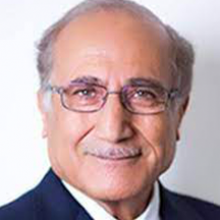You are here
Education and our future
Aug 10,2015 - Last updated at Aug 10,2015
A national conference on education was held in Amman at the end of July, and on August 5, Their Majesties King Abdullah and Queen Rania met with the premier, army chief and education minister to review its main recommendations. The King issued directives for both the military and civilian authorities to merge schools whenever and wherever such a merger was needed.
Although the results of the Tawjihi summer session examination revealed fewer dramatic disappointments in rural and desert areas, bold decisions still have to be made. Small scattered schools which cater for small communities have no chance to provide better education standards and afford skilled teachers. Thus underprivileged areas produce very poor results in public exams.
By merging schools and providing transportation for the students, the Education Ministry and the Armed Forces can pool their efforts and save on squandered funds, thus affording better teachers and improved educational facilities.
Queen Rania, a resilient person with the capacity to exert relentless efforts, has been championing the issue of better education in Jordan. She pioneered teachers’ training and training courses are held regularly to produce more adept educators.
Her Majesty has also worked very hard on improving the quality of school buildings, some of which have poor infrastructure and lack adequate heating facilities where students suffer from bone-piercing cold winters.
The Queen also conducts regular field visits to schools in cities and remote areas to deal with dilapidated buildings, lack of libraries or inadequate educational materials such as computers and even blackboards.
Despite these efforts, a collective public endeavour is needed. Part of Corporate Social Responsibility should be directed towards
enhancing education and vocational training.
Jordan has also been hit by many crises that impacted not only the level of education but also frustrated ongoing reform efforts in that regard.
The Education Ministry is coping with extra annual expenses of about $230 million with around 130,000 Syrian students enrolled in public schools, while UNRWA has revealed its intentions to cut down on its education allocations because of its mounting budgetary deficit. In addition, the situation in Iraq, Yemen and Libya brought back Jordanian students and students from those countries, which led to overcrowding at some schools.
All of these continuous challenges are not accepted by Jordanians as an excuse not to push ahead with educational reform. The heroic efforts of the Royal Family also need to be backed by the international community.
Donors must help us establish vocational centres in each governorate in order to provide EU- or American-standard levels. The trainees should be given remedial courses in English, Arabic and computer skills. A carpenter, blacksmith or plumber should be able to find a job in Europe or the US after graduation.
The purpose is not to export them, but to make them ready to perform jobs with high proficiency in the light of expected new investments which should flow into Jordan.
Mediocrity is no more acceptable in Jordan. If we believe in the educability of our youth, then we should give them the opportunity to demonstrate that capability.
Bless the King and bless the Queen, for they have earned our loyalty and now we should show them that we are up to it. Education is far too important to be handled by educators alone.
The writer, a former Royal Court chief and deputy prime minister, is a member of the Senate. He contributed this article to The Jordan Times.













